Our French Alumnae
Alumnae
Ningyi Xi '17
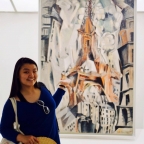
Ningyi Xi is a former French House resident, Art History and Classics Civilization double major, and Davis Museum intern, who found herself at the Louvre Museum in Paris working at the museum’s sous-direction for audience development and art and cultural education. This internship is offered through the Davis Museum's Liliane Pingoud Soriano '49 Curatorial Fellowship, an exchange program between the Davis Museum and the École du Louvre. What Ningyi loved about her work at the Louvre is that she got to observe and participate in the education and outreach programs that the museum offers. In addition to using the French language skills she acquired at Wellesley, Ningyi used her native Chinese to work with Chinese art teachers and Chinese visitors to the museum. Asked about memorable moments at Wellesley College, she notes that her years living at the French House improved her knowledge of French and Francophone cultures and enabled her to become close with former French House assistants, many of whom she has met up with while living in Paris.
(Ningyi Xi in front of La Tour, a 1910 portrait of the Eiffel Tower by Robert Delaunay)
Grace Oh '17
 Grace Oh '15 is a Liliane Pingoud Soriano Fellow at the Louvre Museum in Paris. Grace double-majored in Art History and French Cultural Studies at Wellesley and studied abroad at Aix-Marseille Université with the Wellesley-in-Aix program. Currently, she is at Cornell Law School, where she studies International Law, heads the Art Law Society and is the Associate Editor of the Cornell International Law Journal. After Cornell she hopes to work in the field of art law, integrating her multicultural and art studies with her legal studies. As a Pingoud fellow, Grace worked for the head curator of the Mesopotamian collection in the Near Eastern Antiquities department at the Louvre. Among her projects were co-curating a “Mesopotamian” exhibition that was on display at the Louvre-Lens Museum in 2016 and featured over 300 artifacts; re-identifying a box of jewels from the museum’s collection that had been excavated in the 1800s but never displayed; and working on a music antiquities exhibition. Asked what French courses she found memorable during her time at Wellesley, she recalls particularly enjoying “La Belle Époque,” “Occupation and Resistance” and “A Cinematic History of Intellectual Ideas in Post-WWII France.” She’s grateful for the understanding of history and culture that these courses gave her, and for her time living and studying in France. She points out that a deeper understanding of other cultures is crucial to our ability to navigate an increasingly global and interdependent world, and she expects it will be just as critical to her eventual success at an international law firm.
Grace Oh '15 is a Liliane Pingoud Soriano Fellow at the Louvre Museum in Paris. Grace double-majored in Art History and French Cultural Studies at Wellesley and studied abroad at Aix-Marseille Université with the Wellesley-in-Aix program. Currently, she is at Cornell Law School, where she studies International Law, heads the Art Law Society and is the Associate Editor of the Cornell International Law Journal. After Cornell she hopes to work in the field of art law, integrating her multicultural and art studies with her legal studies. As a Pingoud fellow, Grace worked for the head curator of the Mesopotamian collection in the Near Eastern Antiquities department at the Louvre. Among her projects were co-curating a “Mesopotamian” exhibition that was on display at the Louvre-Lens Museum in 2016 and featured over 300 artifacts; re-identifying a box of jewels from the museum’s collection that had been excavated in the 1800s but never displayed; and working on a music antiquities exhibition. Asked what French courses she found memorable during her time at Wellesley, she recalls particularly enjoying “La Belle Époque,” “Occupation and Resistance” and “A Cinematic History of Intellectual Ideas in Post-WWII France.” She’s grateful for the understanding of history and culture that these courses gave her, and for her time living and studying in France. She points out that a deeper understanding of other cultures is crucial to our ability to navigate an increasingly global and interdependent world, and she expects it will be just as critical to her eventual success at an international law firm.
(Grace at le jardin des Tuileries during a lunch break)
Janine Hegarty '10
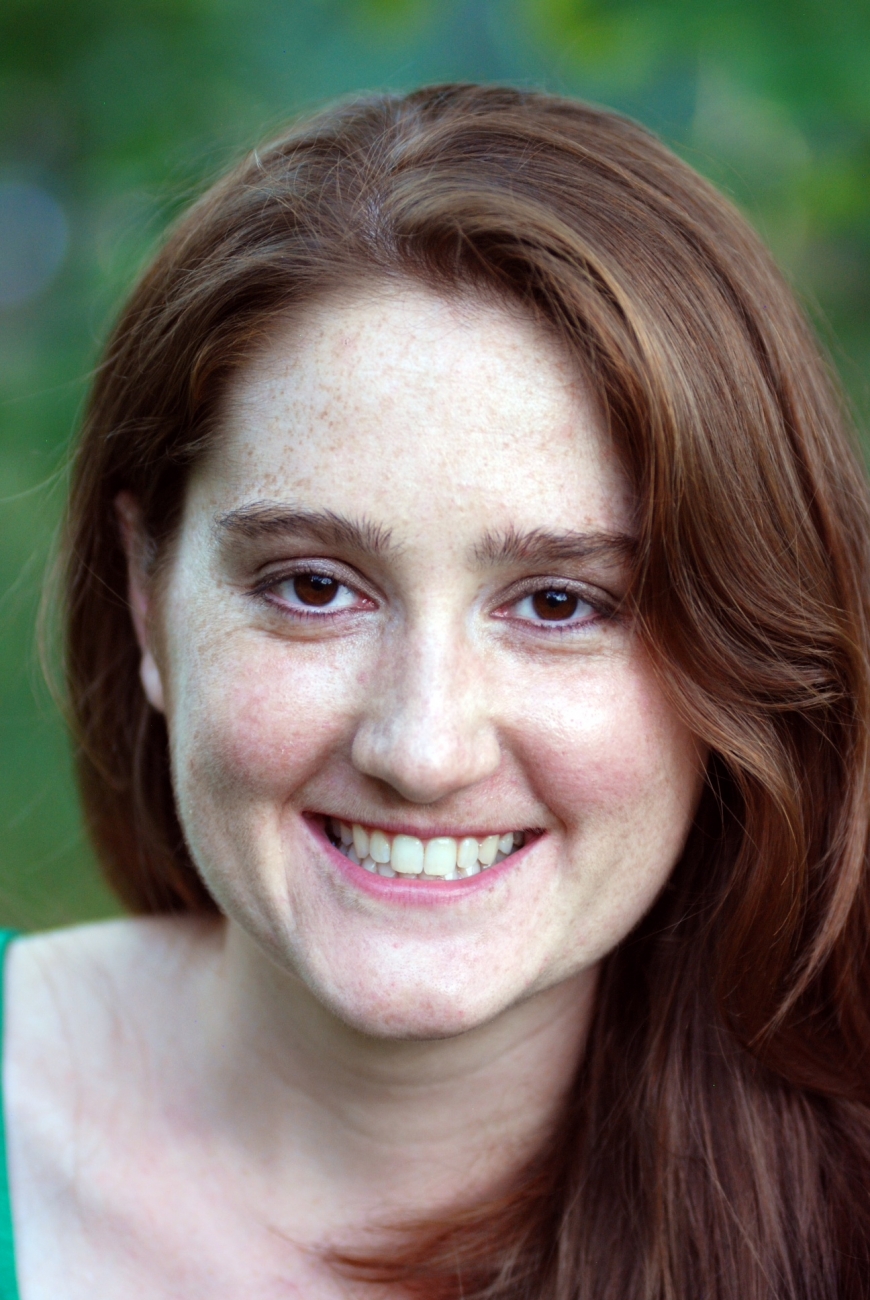 While at Wellesley, I took numerous French classes that helped me to develop a more profound and lifelong love of the language. More importantly, however, Professors Respaut and Masson along with my studies in French, helped me discover myself. When I started at Wellesley, my sole goal was to gain admittance into a top medical school following graduation. I felt that pursuing a double major in neuroscience and French would make me a more desirable candidate. Luckily for me, I was able to explore my love of medicine in several courses: Love and Death, The Doctor's Malady and an independent study in French that extended our exploration of the topics covered in The Doctor's Malady. I justified my study of literary texts since the subject matter was was directly related to my long term goal of becoming a surgeon. Learning the French approach to literary analysis made the material more accessible to me by providing a rigorous and specific frame work upon which to base my study. Years spent writing lab reports and paying close attention to variation rendered the process of writing a commentaire composé comfortable. My course work with Catherine Masson, allowed me to explore my latent love of theatre, starting with her Speaking Through Acting course. Although I had acted in English productions throughout high school and college, it was the first formal acting class I had taken. The French approach to theatre, which began with the rigorous study of text, provided a wonderful entry point to make sense of the plays I was acting in. Furthermore, the French acting methodologies proved to resonant more deeply with me than the other American methods I had read about and would later study. French techniques, like French literary analysis, felt more structured and precise, a welcome method upon which I could rely after my years of training in the sciences. Ultimately, I decided to pursue a thesis in the French department that focused on crafting a new adaptation of a French novel by George Sand for the stage. I began my thesis work by completing an academic analysis of the source text. I then wrote a full length theatrical adaptation in French which I subsequently translated into English. Madame Respaut encouraged me to apply for the Pamela Daniels' Fellowship to help fund a full production of the piece. With the generous assistance of the entire French department faculty and staff, along with more than a dozen actors, I was able to stage a full production, complete with 18th and 19th century period costumes. The experience, along with the tireless support of Respaut and Masson, helped me to realize that I did not actually want to pursue a career in medicine, but rather one the creative arts. After graduating from Wellesley, I received an MA from NYU Tisch in Performance Studies, specializing in adaptation. I currently work in theatre and in the publishing world.
While at Wellesley, I took numerous French classes that helped me to develop a more profound and lifelong love of the language. More importantly, however, Professors Respaut and Masson along with my studies in French, helped me discover myself. When I started at Wellesley, my sole goal was to gain admittance into a top medical school following graduation. I felt that pursuing a double major in neuroscience and French would make me a more desirable candidate. Luckily for me, I was able to explore my love of medicine in several courses: Love and Death, The Doctor's Malady and an independent study in French that extended our exploration of the topics covered in The Doctor's Malady. I justified my study of literary texts since the subject matter was was directly related to my long term goal of becoming a surgeon. Learning the French approach to literary analysis made the material more accessible to me by providing a rigorous and specific frame work upon which to base my study. Years spent writing lab reports and paying close attention to variation rendered the process of writing a commentaire composé comfortable. My course work with Catherine Masson, allowed me to explore my latent love of theatre, starting with her Speaking Through Acting course. Although I had acted in English productions throughout high school and college, it was the first formal acting class I had taken. The French approach to theatre, which began with the rigorous study of text, provided a wonderful entry point to make sense of the plays I was acting in. Furthermore, the French acting methodologies proved to resonant more deeply with me than the other American methods I had read about and would later study. French techniques, like French literary analysis, felt more structured and precise, a welcome method upon which I could rely after my years of training in the sciences. Ultimately, I decided to pursue a thesis in the French department that focused on crafting a new adaptation of a French novel by George Sand for the stage. I began my thesis work by completing an academic analysis of the source text. I then wrote a full length theatrical adaptation in French which I subsequently translated into English. Madame Respaut encouraged me to apply for the Pamela Daniels' Fellowship to help fund a full production of the piece. With the generous assistance of the entire French department faculty and staff, along with more than a dozen actors, I was able to stage a full production, complete with 18th and 19th century period costumes. The experience, along with the tireless support of Respaut and Masson, helped me to realize that I did not actually want to pursue a career in medicine, but rather one the creative arts. After graduating from Wellesley, I received an MA from NYU Tisch in Performance Studies, specializing in adaptation. I currently work in theatre and in the publishing world.
Elise Michael '10
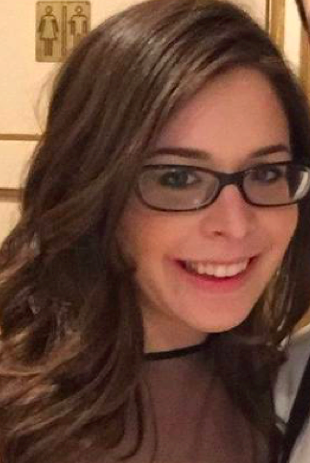 My French major has influenced my life in a variety of ways. Studying French and spending a semester in Aix-en-Provence with the Wellesley-in-Aix program has allowed me to respect and appreciate diverse backgrounds and nationalities. Being immersed in another culture truly broadened my horizons.
My French major has influenced my life in a variety of ways. Studying French and spending a semester in Aix-en-Provence with the Wellesley-in-Aix program has allowed me to respect and appreciate diverse backgrounds and nationalities. Being immersed in another culture truly broadened my horizons.
Studying French has also helped my career. Having a language background improved my grammar and writing skills in law school, in addition to giving me an advantage on job applications. Overall, I am truly grateful for the French skills and cultural knowledge I gained in my studies at Wellesley. My French major has had a tremendous impact on my life and will continue to be an invaluable asset.
Alma Heckman '09
F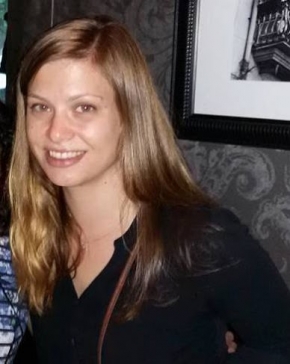 rench remains an integral part of my everyday life and work after Wellesley. After graduating from Wellesley in 2009 I went to Morocco on a Fulbright grant to study various aspects of Jewish history and material culture in that country. Morocco was a French Protectorate from 1912 until the success of its independence movement in 1956. As a legacy of the French colonial system, French remains in use in Morocco along with Arabic and Tamazight. I was also a Middle Eastern Studies major while at Wellesley and had studied Arabic. Thus, my research and above all my daily interactions were in a spoken combination of Arabic and French.
rench remains an integral part of my everyday life and work after Wellesley. After graduating from Wellesley in 2009 I went to Morocco on a Fulbright grant to study various aspects of Jewish history and material culture in that country. Morocco was a French Protectorate from 1912 until the success of its independence movement in 1956. As a legacy of the French colonial system, French remains in use in Morocco along with Arabic and Tamazight. I was also a Middle Eastern Studies major while at Wellesley and had studied Arabic. Thus, my research and above all my daily interactions were in a spoken combination of Arabic and French.
While in Morocco, I narrowed my field of academic investigation as I volunteered at the Moroccan Jewish Heritage Foundation and Museum in Casablanca. There, I met Simon Levy, a man deeply invested in his own and his country’s Jewish heritage as well as being former member of the Moroccan Communist Party and ardent national liberation activist. Inspired by his story, I began a Ph.D. program in at UCLA’s history department in the fall of 2010. I conducted archival research and gathered oral histories across Morocco, France, Israel, the UK and the US for my dissertation filed in June 2015, entitled “Radical Nationalists: Moroccan Jewish Communists, 1945-1975.” This project, which I am currently shaping into a book manuscript, required archival work in French, Arabic, Hebrew and Spanish. I have given conference presentations in French on several occasions, and most of the oral histories I gather are in French.
I am now Assistant Professor in the history department and Jewish Studies program at the University of California, Santa Cruz where I continue my research on modern Jewish history in North Africa and the Middle East as well as teaching related courses.
Meghan Tinsley '07
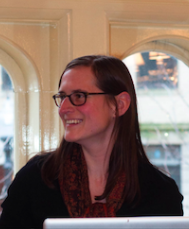 In spring 2006, I joined the Wellesley-in-Aix program, where my cultural experience included a six-week student strike. Our director, Professor Respaut, encouraged us not to waste the strike; our ample time outside the classroom, she said, was a learning opportunity. So I used my free time to talk to my French peers—and it seemed that everyone was talking about the racial and religious boundaries of France. This was only a few months after the uprising in the Parisian banlieue, and there was something in the air: suddenly, everyone was aware that Frenchness was a contested idea.
In spring 2006, I joined the Wellesley-in-Aix program, where my cultural experience included a six-week student strike. Our director, Professor Respaut, encouraged us not to waste the strike; our ample time outside the classroom, she said, was a learning opportunity. So I used my free time to talk to my French peers—and it seemed that everyone was talking about the racial and religious boundaries of France. This was only a few months after the uprising in the Parisian banlieue, and there was something in the air: suddenly, everyone was aware that Frenchness was a contested idea.
When the strike ended, I enrolled in two wonderful classes that shaped my academic trajectory: one on comparative decolonizations at the fac des lettres, and another on the institutional framework of La Francophonie at the IEP. Upon my return to Wellesley, I undertook an independent study with Professor Datta on the purposes and paradoxes of La Francophonie—as a bulwark against global anglophone hegemony on one hand, and as a means of making marginalized creoles and pidgins invisible on the other.
The more I learned, the more I became fascinated by the role of the colonial past in shaping the highly fragmented, contested, postcolonial French nation. So, after graduation, I decided to pursue a MSc in Race, Ethnicity, and Postcolonial Studies at the London School of Economics, where I wrote my thesis on the French language and national identity in postcolonial Guinea. The next year, I moved to La Réunion to work as an assistante d’anglais because I wanted to know how a former colony—and a highly diverse one—negotiated the relationship between its past as a colony with an economy built on slavery and its present as a fully French département d’outre-mer.
Ultimately, I ended up back in Boston, as a PhD candidate in Sociology at Boston University. My specialization is postcolonial British and French national identity. I hope to build a career in academia, and I am certain that France will remain a major component of my research agenda.
Folake Akinola-Pinard '93
 My French journey began in 3rd grade at Brearley with Madame de Laperousse. I did not know at that time that this was a language that I would grow to truly love. I remember lots of songs, games and worksheets with verb tenses. I remember all of my French teachers after Madame de Laperousse; Madame Perrette, Madame Foy and Madame Camille, who was from Haiti. Before I knew it, I was speaking French. In 10th grade, I received a scholarship to study at a little school called College Cevenol in the south of France. It was there that I learned that French boys were loads of fun and that total immersion was the best way to learn a language. I spent two weeks in Paris with a family friend after my stay in the South, fell head over heels in love with Les Halles, and realized that France was a place that I had to visit once again.
My French journey began in 3rd grade at Brearley with Madame de Laperousse. I did not know at that time that this was a language that I would grow to truly love. I remember lots of songs, games and worksheets with verb tenses. I remember all of my French teachers after Madame de Laperousse; Madame Perrette, Madame Foy and Madame Camille, who was from Haiti. Before I knew it, I was speaking French. In 10th grade, I received a scholarship to study at a little school called College Cevenol in the south of France. It was there that I learned that French boys were loads of fun and that total immersion was the best way to learn a language. I spent two weeks in Paris with a family friend after my stay in the South, fell head over heels in love with Les Halles, and realized that France was a place that I had to visit once again.
Enter Wellesley. My mom is from Togo, so my initial desire to learn to speak French came from wanting to communicate with my family members in a language other than Ewe, which I can't speak. My dream was to take classes about French speaking people all over the Diaspora, which I did. In high school, I wanted to become a diplomat, or study linguistics. At Wellesley, my heart ran towards French and Africana Studies. Each class was utter bliss; I met a woman who inspired me to no end, Professor Michèle Respaut. Brilliant, petite, funky, classy, funny, you name it; she was everything I wanted to be. As I write, tears come to my eyes because of the profound impact she has had on my life. With her, I traveled to Aix en Provence, fell in love with French even more and an Algerian motorcycle-riding, soccer-playing, garbage collector, which is partially why my French improved so much. I made great friends, from my roommate Hannah Chung, to students like Jennifer Schram, a fellow junior-year-abroad student from another university. I spoke French endlessly, rode on a Triumph motorcycle and even (after a dare) sang at a café on the Cours Mirabeau, which is a memory I will never forget.
French at Wellesley was not just about learning a language. It was about being given the gift of something that would give me connecting abilities. French connected me to my family, to the true love of my life, my husband, who is of Haitian descent, to cab drivers of all races and to people from my church all over the world. But really, my French experience is what inspired me to become an educator. The high that I received from learning everything about this language is something that I think about when I teach. It is something I want to replicate as soon as I see the face of a student. I have been working in elementary schools as teacher and more recently as an administrator for 18 years. I am now training to become a principal. I want to give and share this high; this inexplicable high with those around me. I am able to do so by training teachers to make learning as exciting as it has been for me, both in school and as a volunteer for International Youth Fellowship; a faith-based organization that I volunteer for. As I write, I am on a mission trip teaching English to Mexican students. My knowledge of French has made it so much easier to understand Spanish. My love of French and the understanding that it takes a great deal of courage to learn another language, has given me the heart to teach, both on mission trips and in classrooms in the States, with empathy. Merci mille fois, Wellesley. I pray to touch others in the way that you have touched me.
